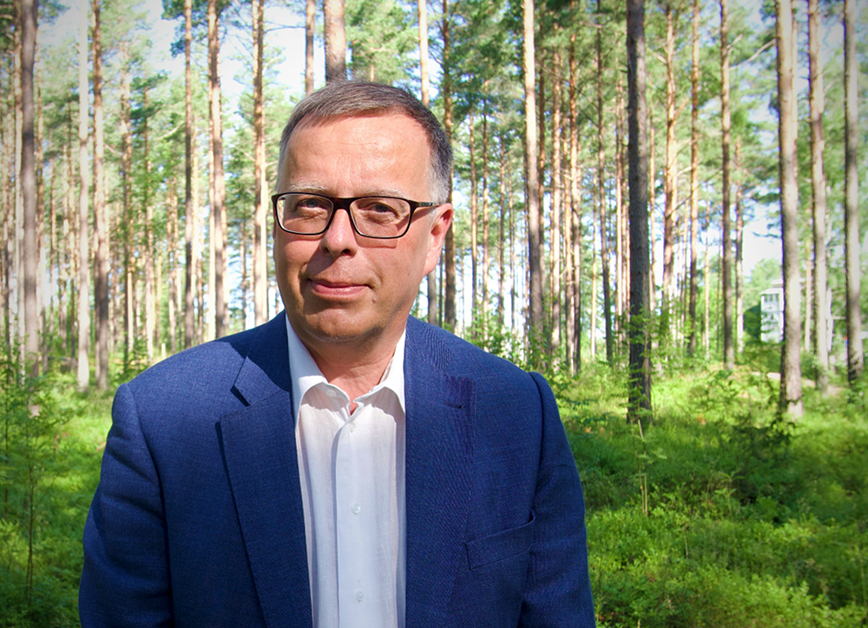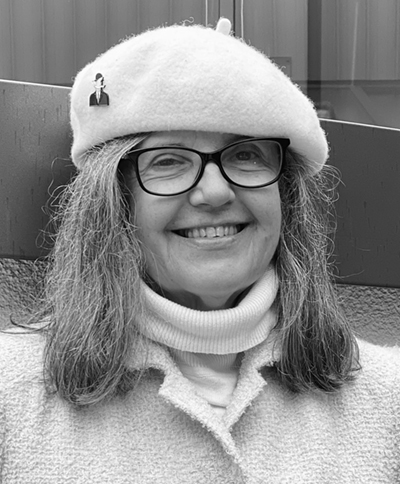Honorary doctor focuses on collaboration for a fossil-free future

Anders Brolin, a director with many years’ experience of research in the forest industry, has played an important role in developing KTH’s research into pulp and paper. Recently, there has been a focus on collaboration in the circular bioeconomy.
“Cultivating the forest with care and in harmony with biological diversity is the key to sustainable development,” says Brolin, a new honorary doctor at KTH.
Receiving the distinction, which will be presented at the conferment ceremony for new doctors on 18 November, is a great honour and also comes as something of a surprise, he says.
“I am grateful to have spent so many years working in environments where I could contribute to the collaboration between academia, institutes and industry while being able to continue with my own learning.”
Brolin graduated with an MSc in Engineering in the late 1980s and went on to work as a research engineer at KTH for a further five years.
His time at KTH was informative. The knowledge he gained from his degree, in particular regarding process technology, has come in very useful as he has faced various challenges, emphasises Brolin, and he cites his professors Nils Hartler and Josef Gierer as role models.
“The close links between the industry and the research and education cluster of forest-related institutions at the time, which also collaborated closely with Svenska Träforskningsinstitutet [a wood research institute that later became part of RISE Research Institutes of Sweden], was very appealing to me. It was a tremendously open and inspiring environment for a young student to come to,” he says.
Building consensus
After his time at KTH, he was recruited by Stora, now Stora Enso, a company he has been faithful to ever since. He was attracted by the opportunity to work on raw materials management and fibre properties, subjects that he had studied as part of various collaboration projects with the forest industry.
A career followed during which he has been responsible, for example, for building up a competence area for fibre and paper physics and leading Stora Enso’s packaging-related research in his capacity as research director. Little by little he began to develop an innovation management system and became responsible for the growth of stronger relations with external research and innovation partners, which is one of his main duties at present.
What are you most proud of?
“What always gives me great satisfaction is the moment when a group reaches a consensus, and where I feel I’ve been able to contribute in some way, to get people moving in the same direction.”
What is the hottest R&D issue you’re dealing with right now?
“It’s the same hot research topic that we’ve always faced: resource-efficient cultivation of the forest.”
Driving the transition
Brolin emphasises that it is more important than ever to ensure that the timber felled is sufficient to produce high-quality materials and products that can replace fossil-based alternatives. The idea behind this thinking is to ensure that biogenic carbon remains in the eco-cycle and is sequestered in wood-based products for as long as possible.
How can your area take the next step forward amid climate change and other environmental impact?
“I am convinced that as a company and sector we are in a good position to drive the transition. Everything is based on the renewable raw material – the forest – which we refine into climate-smart products. Here at Stora Enso, sustainability is not just good business, it is the business.”
Stora Enso’s collaborations with KTH are broad, in-depth and frequent, says Brolin. A partnership agreement was signed five years ago. The collaboration within the TreeSearch platform is hugely valuable, as is that in the various competence centres, such as the Wallenberg Wood Science Centre (WWSC), according to Brolin.
“There is no doubt that KTH, with its outstanding forest industry credentials, is an important partner, particularly as a recruitment base, but also in long-term, research-based knowledge building, which is more important than ever.”
Text: Christer Gummeson

